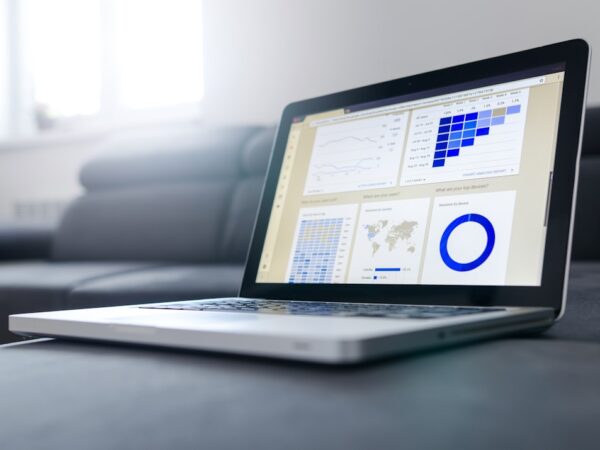
The Intersection of Economics and Public Policy: How Policies Impact the Economy and Our Lives
The relationship between economics and public policy is a crucial one, as public policy decisions have a significant impact on the economy. Economics is the study of how individuals, businesses, and governments allocate resources to satisfy their needs and wants. Public policy, on the other hand, refers to the decisions and actions taken by governments to address societal issues and achieve specific goals. These goals can range from promoting economic growth and reducing unemployment to addressing income inequality and protecting the environment.
Understanding the impact of public policy on the economy is essential because it allows policymakers to make informed decisions that can lead to positive outcomes. By analyzing the potential consequences of different policy options, policymakers can choose the most effective strategies to achieve their desired goals. Additionally, understanding the relationship between economics and public policy helps individuals and businesses anticipate and adapt to changes in government regulations and policies that may affect their economic activities.
Key Takeaways
- Economics and public policy intersect to shape economic outcomes and social welfare.
- Public policy plays a crucial role in regulating economic activity and promoting market efficiency.
- Fiscal policy can impact economic growth through government spending and taxation.
- Monetary policy can manage inflation and unemployment through interest rates and money supply.
- International trade policies can affect domestic economic activity and competitiveness.
Understanding the Role of Public Policy in the Economy
Public policy plays a crucial role in shaping the economy by influencing various aspects of economic activity. It sets the rules and regulations that govern economic behavior, determines the allocation of resources, and affects the overall business environment. For example, policies related to taxation, government spending, trade, labor market regulations, and environmental protection all have significant implications for economic outcomes.
Taxation policies, for instance, determine how much individuals and businesses pay in taxes, which affects their disposable income and spending power. Government spending policies determine how resources are allocated across different sectors of the economy, such as infrastructure development or social welfare programs. Trade policies determine the conditions under which goods and services can be imported or exported, affecting domestic industries’ competitiveness. Labor market regulations determine employment conditions, such as minimum wage laws or worker protection rights. Environmental protection policies regulate industries’ activities to ensure sustainable development.
The Impact of Fiscal Policy on Economic Growth
Fiscal policy refers to the use of government spending and taxation to influence the economy. It is a powerful tool that can be used to stimulate economic growth, stabilize the economy during recessions, and address income inequality. Fiscal policy can be expansionary or contractionary, depending on whether the government is increasing or decreasing its spending or taxation.
Expansionary fiscal policies, such as increasing government spending or reducing taxes, can stimulate economic growth by increasing aggregate demand. When the government spends more or reduces taxes, individuals and businesses have more money to spend, leading to increased consumption and investment. This increased spending creates a multiplier effect, where each dollar spent generates additional income and spending in the economy. As a result, economic output and employment levels increase.
Contractionary fiscal policies, on the other hand, aim to reduce inflationary pressures or address budget deficits. This can be achieved through measures such as reducing government spending or increasing taxes. By reducing government spending, the government can decrease aggregate demand and control inflationary pressures. Similarly, by increasing taxes, the government can reduce disposable income and decrease consumption, which can help address budget deficits.
The Role of Monetary Policy in Managing Inflation and Unemployment
| Metrics | Description |
|---|---|
| Inflation rate | The percentage increase in the general price level of goods and services over a period of time. |
| Unemployment rate | The percentage of the labor force that is currently unemployed but actively seeking employment and willing to work. |
| Monetary policy | The process by which a central bank manages the supply and demand of money and credit in the economy to achieve its macroeconomic objectives. |
| Interest rates | The cost of borrowing money, determined by the supply and demand of credit in the economy and set by the central bank through its monetary policy. |
| Money supply | The total amount of money in circulation in the economy, including cash, checking accounts, and other forms of liquid assets. |
| Inflation targeting | A monetary policy strategy in which the central bank sets a specific target for the inflation rate and adjusts its policy tools to achieve that target. |
| Phillips curve | A graphical representation of the inverse relationship between inflation and unemployment, suggesting that policymakers face a trade-off between these two variables. |
Monetary policy refers to the actions taken by a central bank to manage the money supply and interest rates to achieve specific economic goals. The primary objectives of monetary policy are usually to maintain price stability (manage inflation) and promote full employment (manage unemployment). Central banks use various tools, such as open market operations, reserve requirements, and interest rate adjustments, to influence the money supply and interest rates.
When there is an inflationary pressure in the economy, central banks can implement contractionary monetary policies. This involves reducing the money supply by selling government securities in open market operations or increasing reserve requirements for banks. By reducing the money supply, central banks aim to decrease aggregate demand and control inflation.
Conversely, when there is a recession or high unemployment rate in the economy, central banks can implement expansionary monetary policies. This involves increasing the money supply by purchasing government securities in open market operations or decreasing reserve requirements for banks. By increasing the money supply, central banks aim to stimulate aggregate demand and promote economic growth and employment.
The Impact of International Trade Policies on the Domestic Economy
International trade policies refer to the rules and regulations that govern the exchange of goods and services between countries. These policies can have a significant impact on the domestic economy by affecting industries’ competitiveness, employment levels, and consumer prices.
Trade policies can be classified into two broad categories: protectionist policies and free trade policies. Protectionist policies aim to protect domestic industries from foreign competition by imposing barriers to trade, such as tariffs (taxes on imported goods) or quotas (limits on the quantity of imported goods). These policies can help domestic industries by shielding them from foreign competition, but they can also lead to higher prices for consumers and reduced efficiency in the economy.
On the other hand, free trade policies aim to promote open and unrestricted trade between countries. These policies remove barriers to trade, such as tariffs or quotas, and encourage the exchange of goods and services based on comparative advantage. Free trade policies can lead to lower prices for consumers, increased competition, and improved efficiency in the economy. However, they can also lead to job displacement in certain industries that are unable to compete with foreign producers.
The Role of Government Regulation in Promoting Market Efficiency
Government regulation refers to the rules and standards set by governments to govern economic activities and ensure fair competition. Regulations are often necessary to correct market failures, protect consumers, and promote market efficiency.
Market failures occur when the free market fails to allocate resources efficiently or when there is a lack of competition. For example, monopolies or oligopolies can restrict competition and lead to higher prices for consumers. In such cases, government regulations can be used to promote competition and protect consumers’ interests. Regulations can include antitrust laws, which prevent monopolistic practices, or consumer protection laws, which ensure that consumers are not exploited.
Government regulations can also be used to address externalities, which are costs or benefits that are not reflected in the market price of a good or service. For example, pollution is an externality that imposes costs on society but is not accounted for in the price of goods produced by polluting industries. Environmental regulations can be used to internalize these costs by imposing restrictions on pollution levels or requiring industries to adopt cleaner technologies.
The Impact of Taxation Policies on Economic Incentives and Behavior
Taxation policies refer to the rules and regulations governing the collection of taxes from individuals and businesses. Taxes are a crucial source of government revenue and play a significant role in shaping economic incentives and behavior.
Different types of taxes can have different impacts on economic incentives and behavior. For example, income taxes can affect individuals’ incentive to work and save. High income tax rates can reduce the incentive to work more or earn higher incomes, as individuals may feel that they are not adequately rewarded for their efforts. Similarly, high tax rates on savings and investments can discourage individuals from saving or investing, as they may feel that the returns on their investments are not worth the tax burden.
On the other hand, taxes can also be used as a tool to promote certain behaviors or discourage others. For example, governments often use taxes on harmful goods such as cigarettes or alcohol to discourage consumption and promote public health. Similarly, taxes on carbon emissions can be used to discourage pollution and promote environmental sustainability.
The Role of Social Welfare Policies in Reducing Income Inequality
Social welfare policies refer to government programs and initiatives aimed at reducing income inequality and providing support to vulnerable populations. These policies play a crucial role in promoting social equity and ensuring that everyone has access to basic necessities and opportunities.
Social welfare policies can take various forms, such as income transfer programs, healthcare programs, education subsidies, and housing assistance. Income transfer programs, such as welfare or unemployment benefits, provide financial support to individuals and families with low incomes or who are unemployed. Healthcare programs ensure that everyone has access to affordable healthcare services. Education subsidies help individuals from low-income backgrounds access quality education and improve their chances of upward mobility. Housing assistance programs provide affordable housing options for individuals and families who cannot afford market-rate housing.
By reducing income inequality and providing support to vulnerable populations, social welfare policies can help create a more equitable society and promote social cohesion. They can also contribute to economic growth by ensuring that everyone has access to basic necessities and opportunities, which can lead to increased productivity and human capital development.
The Impact of Environmental Policies on Economic Development and Sustainability
Environmental policies refer to the rules and regulations that govern the use of natural resources and protect the environment. These policies play a crucial role in promoting economic development while ensuring long-term sustainability.
Environmental policies can take various forms, such as regulations on pollution levels, incentives for renewable energy development, or conservation measures. By imposing restrictions on pollution levels, governments can ensure that industries adopt cleaner technologies and reduce their environmental impact. Incentives for renewable energy development can promote the transition to cleaner and more sustainable energy sources. Conservation measures can protect natural resources and biodiversity for future generations.
While some argue that environmental regulations can impose costs on businesses and hinder economic growth, others argue that they can also create new opportunities for innovation and job creation. For example, the development of renewable energy technologies has created new industries and job opportunities in the clean energy sector. Additionally, sustainable management of natural resources can ensure their long-term availability and contribute to economic stability.
The Importance of Effective Public Policy in Promoting Economic Prosperity and Social Welfare
In conclusion, understanding the impact of public policy on the economy is crucial for policymakers, businesses, and individuals. Public policy decisions have a significant influence on economic outcomes, such as economic growth, inflation, unemployment, income inequality, and environmental sustainability. By analyzing the potential consequences of different policy options, policymakers can make informed decisions that promote economic prosperity and social welfare.
Effective public policy requires a comprehensive understanding of the intersection between economics and public policy. It involves considering the trade-offs and unintended consequences of different policy options and finding the right balance between competing objectives. It also requires ongoing evaluation and adjustment of policies to ensure their effectiveness and adaptability to changing economic conditions.
To promote economic prosperity and social welfare, policymakers must prioritize evidence-based decision-making, stakeholder engagement, and transparency. They must also consider the long-term implications of their policies and strive for sustainable development that balances economic growth with environmental protection and social equity.
In conclusion, effective public policy is essential for promoting economic prosperity and social welfare. By understanding the impact of public policy on the economy, policymakers can make informed decisions that lead to positive outcomes. It is crucial for individuals, businesses, and governments to engage in ongoing dialogue and collaboration to ensure that public policies are effective, equitable, and sustainable. Only through effective public policy can we achieve economic prosperity and social welfare for all.
If you’re interested in exploring the intersection of economics and public policy, you might find this article from Wave Magnets intriguing. Titled “The Role of Government in Shaping Economic Growth,” it delves into the various ways in which government policies can influence and shape economic development. From fiscal policies to regulatory frameworks, this article provides a comprehensive analysis of how governments can effectively foster economic growth. Check it out here for an insightful read on this important subject.
FAQs
What is economics?
Economics is a social science that studies how individuals, businesses, governments, and societies allocate scarce resources to satisfy their unlimited wants and needs.
What is public policy?
Public policy refers to the actions and decisions made by governments to address public issues and problems.
What is the relationship between economics and public policy?
Economics provides the theoretical framework and analytical tools for understanding the impact of public policies on the economy and society. Public policy, in turn, shapes the economic environment in which individuals and businesses operate.
What are some examples of public policies that affect the economy?
Examples of public policies that affect the economy include taxation, government spending, regulation, trade policies, and monetary policy.
What is the role of government in the economy?
The role of government in the economy is to provide public goods and services, regulate markets, promote competition, and address market failures such as externalities and public goods.
What is the difference between microeconomics and macroeconomics?
Microeconomics studies the behavior of individuals and firms in markets, while macroeconomics studies the economy as a whole, including issues such as inflation, unemployment, and economic growth.
What is the role of economists in public policy?
Economists play a key role in informing public policy by providing analysis and advice on the economic impact of policy proposals and evaluating the effectiveness of existing policies.


















